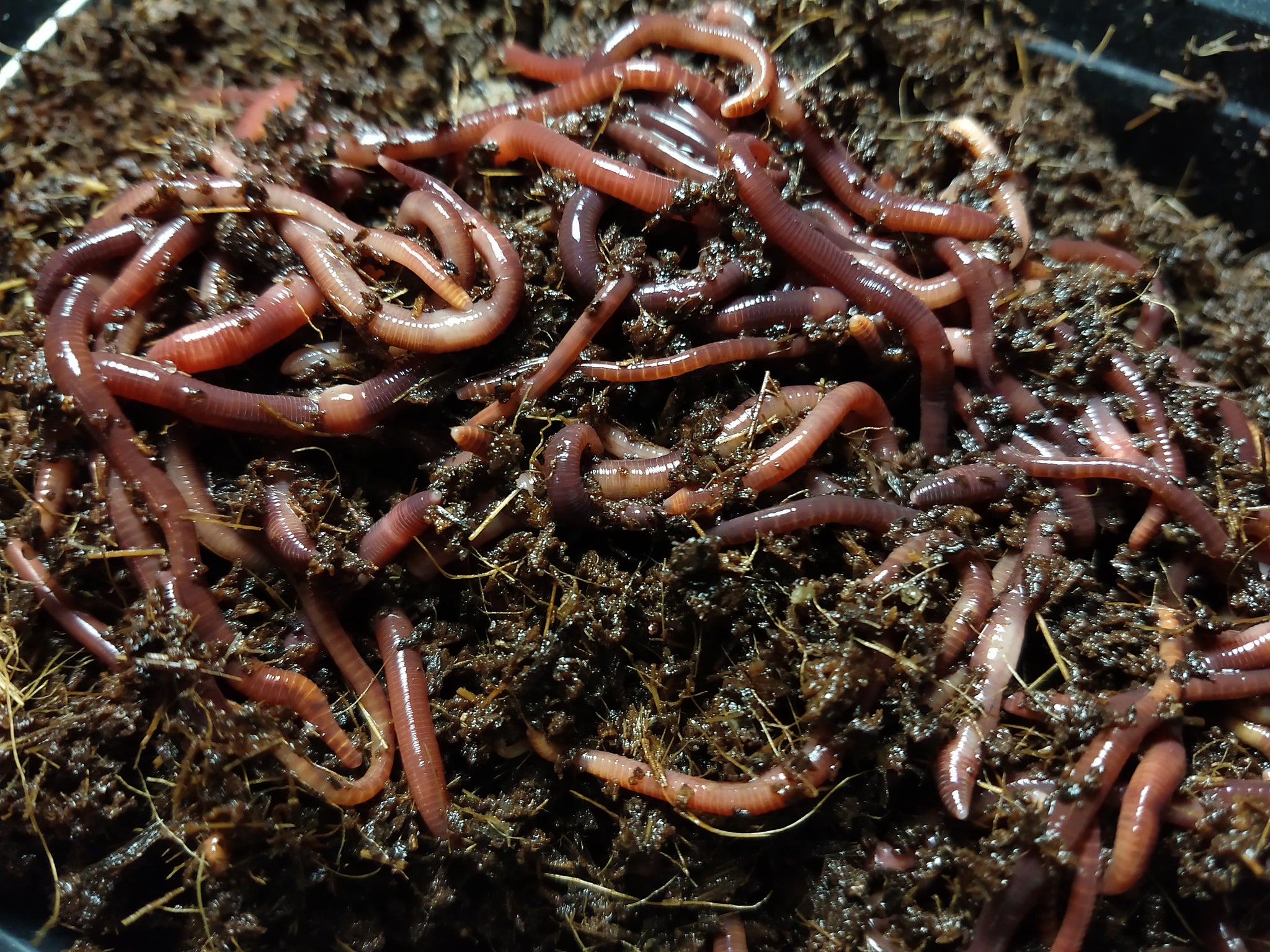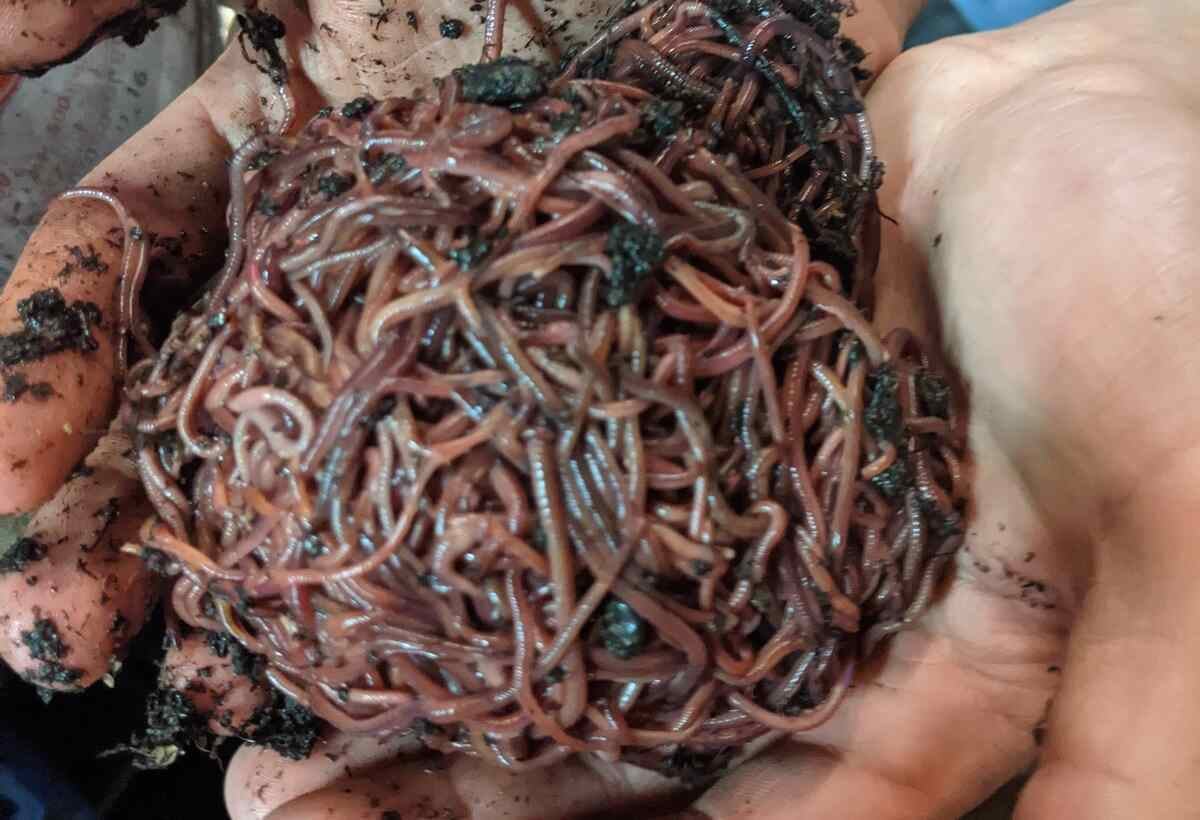The Unbelievable World of Red Wigglers: Increase Your Soil Fertility Today
The role of red wigglers, or Eisenia fetida, in enhancing soil fertility is a topic of expanding interest among gardeners and agricultural experts. These tiny yet efficient organisms transform organic waste into useful worm castings, considerably enhancing dirt health and wellness and promoting sustainable practices. As we explore the benefits of vermicomposting and the useful steps to produce an effective worm bin, the potential effect of these worms on your gardening success ends up being increasingly obvious. Comprehending the subtleties of their care and application might just transform the way you approach dirt management. What understandings can be gotten from integrating these amazing creatures right into your gardening routine?
Understanding Red Wigglers
Red wigglers, medically known as Eisenia fetida, are a species of earthworm that play an important role in boosting dirt fertility. These worms flourish in organic-rich settings, such as garden compost heaps and rotting plant product, where they eat natural waste and eliminate nutrient-dense castings. Their unique composition, including a fractional body and a clitellum, allows them to reproduce rapidly and efficiently procedure big quantities of raw material.

The ecological significance of red wigglers extends beyond mere waste processing; they add to the dirt food internet, cultivating a diverse neighborhood of microbes that further improve dirt health and wellness. Recognizing the biology and behavior of red wigglers is important for harnessing their complete possibility in lasting farming and gardening methods.
Benefits of Vermicomposting
(Lake Hickory Bait)Utilizing the power of red wigglers with vermicomposting offers many advantages that dramatically improve dirt health and wellness and fertility. Among the key advantages is the production of nutrient-rich worm spreadings, which are an excellent natural plant food. Red Wiggler Express. These castings consist of necessary nutrients like nitrogen, phosphorus, and potassium, promoting robust plant development and enhancing crop returns
The visibility of worm castings enhances dirt appearance, enabling for much better water retention and water drainage. Red wigglers help damage down natural matter, increasing disintegration and reusing nutrients back into the soil.
Vermicomposting additionally fosters microbial task, which is vital for a healthy and balanced dirt ecological community. Beneficial microbes prosper in the existence of worm spreadings, helping in the break down of organic products and boosting nutrient availability to plants.
Finally, vermicomposting acts as an effective waste monitoring remedy, minimizing land fill waste by reusing kitchen scraps and other natural products. This not just adds to environmental sustainability but also promotes a round economy within gardening and agriculture.
How to Establish Up a Worm Container
Establishing a worm container is a straightforward procedure that can dramatically enhance your composting initiatives. Begin by picking a proper container, which can vary from a commercially readily available worm container to a basic plastic or wooden box (Red Wiggler Express). Make certain the container has sufficient air flow; tiny holes in the lid and sides will certainly facilitate air blood circulation
Next, develop a bedding layer to offer a comfortable atmosphere for the red wigglers. This can be made from shredded newspaper, cardboard, or coconut coir, moistened to a wet, sponge-like uniformity. Fill the bin to about one-third complete with this bedding product.
When the bedding is prepared, it's time to present the worms. Red wigglers prosper in organic waste, so location them carefully onto the bed linens. Cover the worms with a light layer of added bed linen to help them adapt.
Feeding Your Red Wigglers
Offering the right food for your red wigglers is essential for their wellness and the efficiency of your composting system. Red wigglers flourish on a diverse diet plan, mainly containing organic products such as fruit and veggie scraps, coffee grounds, and shredded paper. These materials not just give vital nutrients yet additionally add to the microbial activity in the worm bin, which is crucial for the worms' digestion.
It is necessary to avoid certain foods, such as dairy items, oils, and meats, as these can attract pests and develop unpleasant smells. Furthermore, citrus peels and overly spicy foods ought to be restricted because of their prospective to hurt the worms. A balanced technique to feeding entails keeping track of the quantity of food presented to the container, making sure that it is eaten within a reasonable amount of time to stop excess waste accumulation.
To advertise optimum food digestion, it is valuable to slice or shred bigger food items prior to including them to the bin. This practice increases the surface for microbial activity, promoting quicker decay and boosting the total effectiveness of your composting system. Consistently observing the worms' feeding behaviors will aid you readjust their diet as needed.
Making Use Of Worm Spreadings in Your Garden

(Red Wiggler Express)Including worm spreadings right into your yard can be accomplished by blending them into the dirt or using them as a top clothing. The slow-release nature of these spreadings guarantees that nutrients are available to plants over an extended period, decreasing the need for artificial fertilizers. Furthermore, worm castings have helpful microbes that advertise Read More Here healthy and balanced dirt environments, boosting the general strength of your yard.
To maximize the advantages, purpose to apply approximately one part worm castings to three parts soil in your growing beds. Normal applications can lead to improved crop returns and healthier plants, making worm spreadings a vital source for both amateur and seasoned garden enthusiasts alike. By using this all-natural modification, you can cultivate a flourishing yard while adding to sustainable gardening techniques.
Verdict
In conclusion, red wigglers exemplify the essential duty of vermicomposting in improving dirt fertility. Their ability to convert organic waste into nutrient-rich spreadings dramatically enhances dirt framework and supports microbial variety.